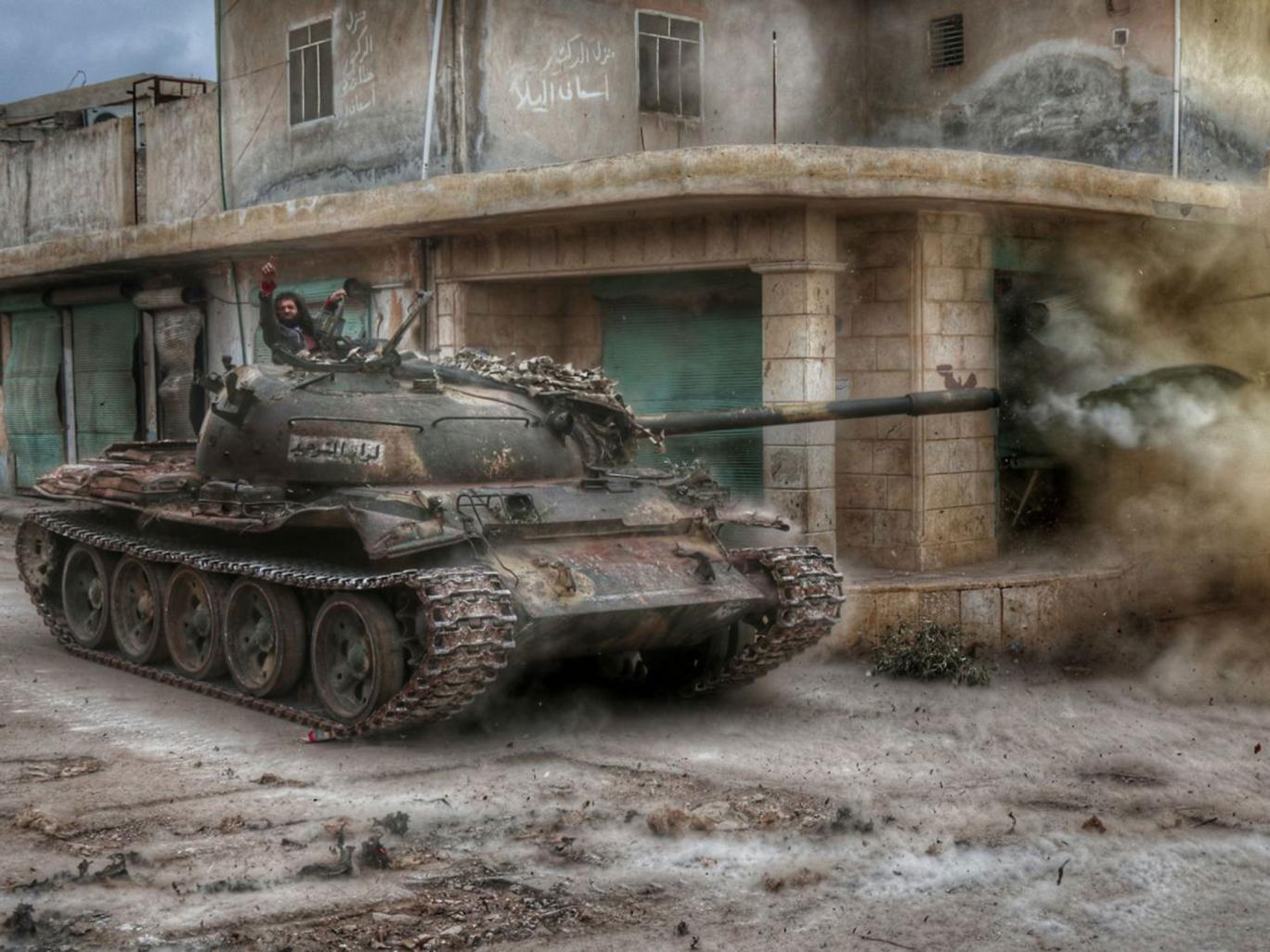Fisk reports the ‘untold story’ of the two towns of Nubbul and Zahraa, which were besieged by Takfiri militants for about three years.
The English writer and journalist, Robert Fisk, talks about the suffering of the two liberated towns of Nubbul and Zahraa in Syria’s Aleppo.
In a report published by The independent on Monday, Fisk reports the ‘untold story’ of the two towns which were besieged by Takfiri militants for about three years.
“This is the untold story of the three-and-a-half-year siege of two small Shia Muslim villages in northern Syria.”
 Fisk says that although the capture of Zahra and Nubbul “caught headlines for a few hours three weeks ago, the world paid no heed to the suffering of these people, their 1,000 “martyrs”, at least half of them civilians, and the 100 children who died of shellfire and starvation."
Fisk says that although the capture of Zahra and Nubbul “caught headlines for a few hours three weeks ago, the world paid no heed to the suffering of these people, their 1,000 “martyrs”, at least half of them civilians, and the 100 children who died of shellfire and starvation."
“For these were villages that remained loyal to the Syrian regime and paid the price – and were thus unworthy of our attention, which remained largely fixed on those civilians suffering under siege by government forces elsewhere.”
Fisk says that both towns should be an 18-minute drive off the motorway north-east of Aleppo but the war’s front lines in the sharp-winded north of Syria have cut so deeply into the landscape that to avoid the men of the Jabhat al-Nusra and Isis (Nusra Front and ISIL Takfiri groups), you have to drive for two hours along fields and broken country roads and through villages smashed and groined by the Syrian offensive.
The English reporter quoted a police commander, Rakan Wanous, as recording of the siege and deaths in Nubbull and Zahraa.
The police commander “recorded, with obviously bitter memories, the threatening phone calls he took from the Nusra forces surrounding his two villages.”
“Once, they told me they were going to come and slaughter us – and slaughter me – and I told them: ‘Well, let’s wait until you get here and see.’ On another occasion, they threatened to shower us with chemical weapons,” Fisk quotes Wanous as saying about his memories.
Up to 25,000 of the original 100,000 civilian inhabitants managed to flee to Turkey in the early days of the fighting, Fisk says in his report. The rest were trapped in their homes and in the narrow, shell-blasted streets.
“We reached a period after a year when we were in despair,” the report quotes one of the local civil administrators, Ali Balwi, as saying.
“We never expected this to end. Many of the civilians died because their wounds could not be cared for. We ran out of petrol early on. They cut off all electricity,” Balwi goes on saying.
The villages’ sole link with the outside world was the mobile phone system that operated throughout the siege so that civilians and militiamen could keep in touch with families and friends in Aleppo, according to the report.
Fisk also cites Mohamed Nassif, a 61-year old civil servant, who recalled how he had, in desperation, called the UN in New York to plead for help and humanitarian aid for the villages.
“I spoke to someone – he was a Palestinian lawyer – at the UN Human Rights office in New York and I asked if there was any way the UN could lift this siege and help us. I asked for humanitarian aid. But they did nothing. I did not hear back from them,” Nassif said.
When the siege began, Wanous said, the Syrian government resupplied the villagers with food, bread, flour and medicine. The helicopters also dropped ammunition. There were three or four flights every day during the first year.
“Then at about five o’clock, at dawn, on 30 June 2013, a helicopter came to us with some returning villagers from Aleppo and a staff of seven teachers for our schools who were to hold the school exams here,” Wanous said.
“Someone in Mayer fired a rocket at the helicopter and the pilot managed to steer it away from the village and it crashed on the hillside outside in a big explosion. There were 17 on board, including the pilot and extra crewman.
Everyone died. The bodies were in bits and all were burnt. That was the last helicopter to fly to us.” The wreckage of the helicopter still lies on the hillside.
However, Fisk says that Kurdish fighters tried to open a road to Nubbul and Zahaa but Nusra Front blocked them. So they smuggled food to their Syrian compatriots by night.
There are differing accounts of what happened next. Some in the village admitted that food prices became so high that poor people could not afford to eat. The authorities say that at least 50 civilians died of hunger.
Fatima Abdullah Younis described how she could not find medicine for her sick mother – or for two wounded cousins who could not be cared for and died of their injuries.
“God’s help was great for us and so we were patient,” she said. “But we suffered a lot and paid a heavy price in the blood of our martyrs.”
During the siege, Ms Younis learned that her nephew, Mohamed Abdullah, had been killed in Aleppo. She and her husband have lost 38 members of their two families in the war.